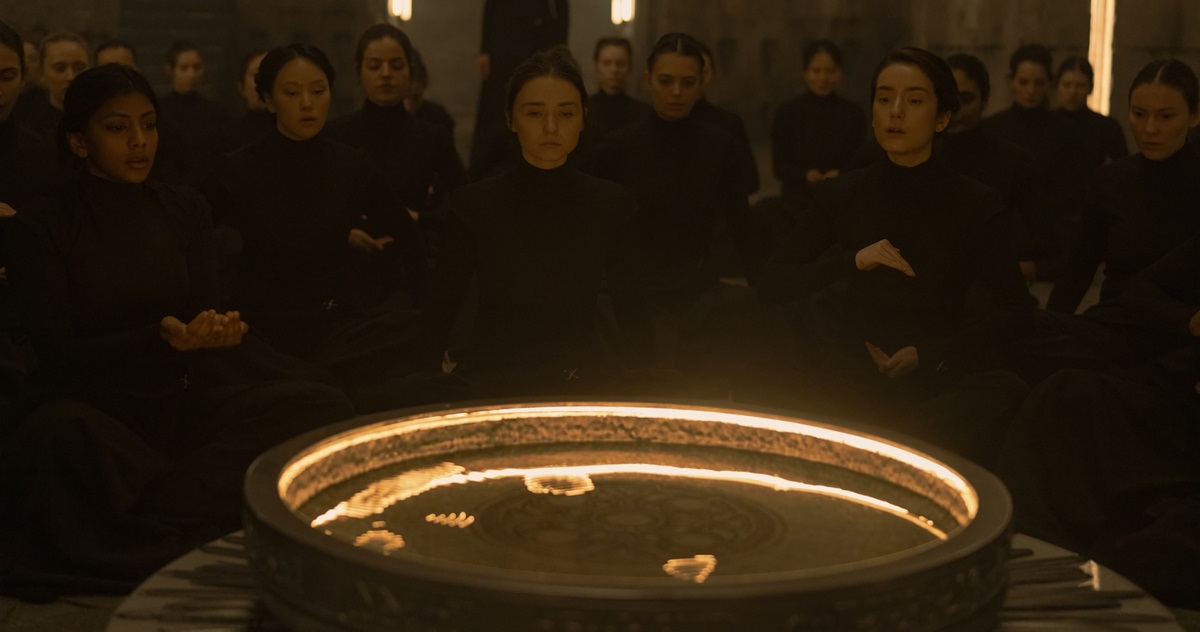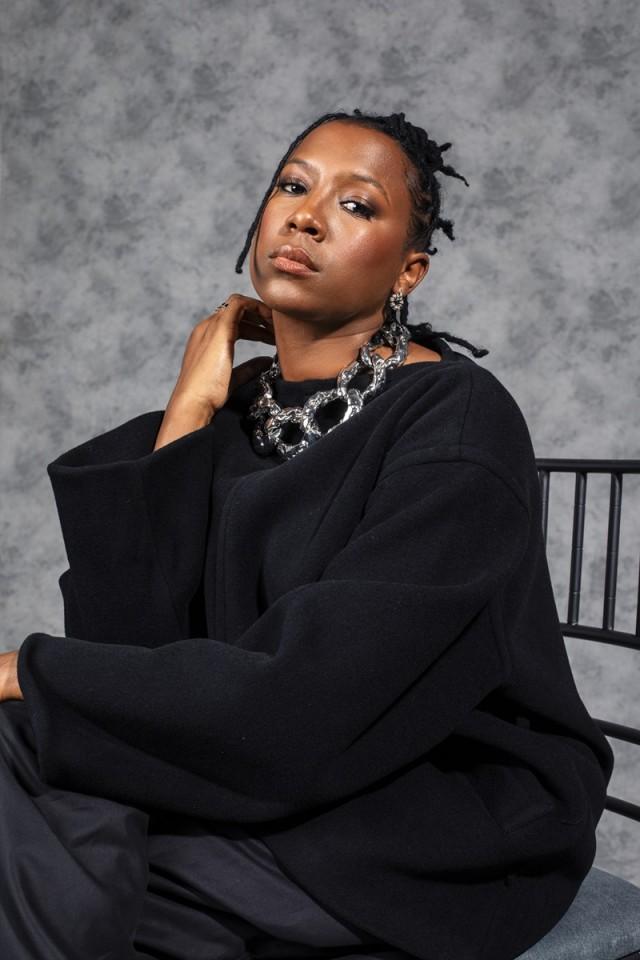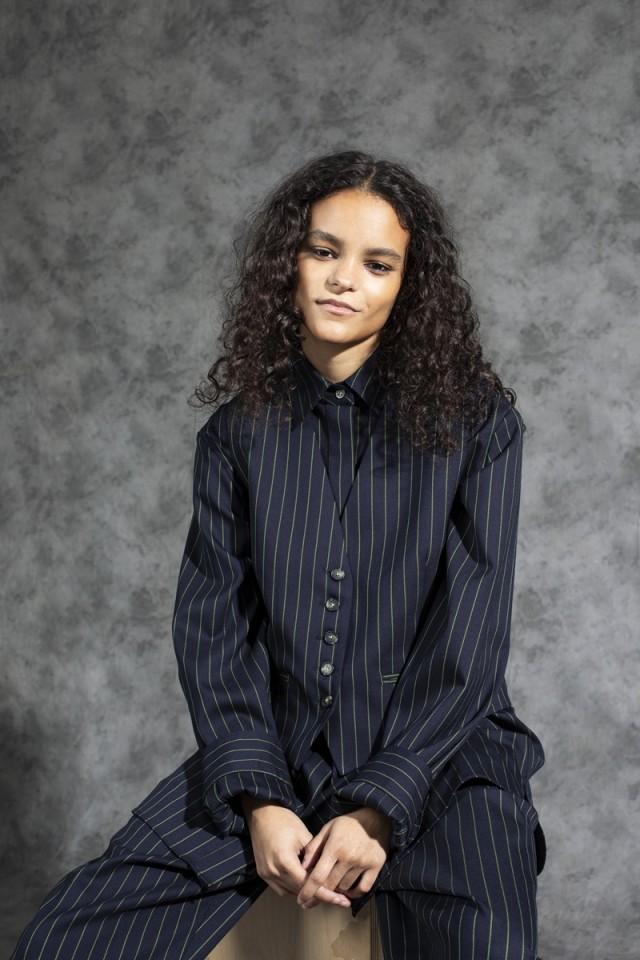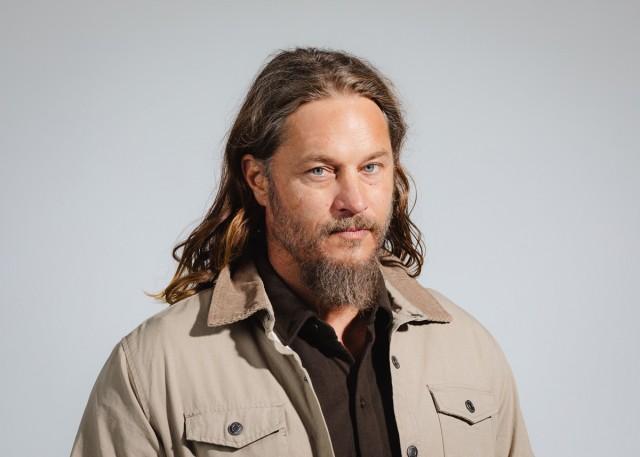Cast and creatives talk of the making of 'Dune: Prophecy'

Ten thousand years before Paul Atreides, there was the Bene Gesserit, the fabled sisterhood that possessed superhuman powers after undergoing years of intense physical and mental conditioning and training.
"Dune: Prophecy," the sci-fi epic series developed by Alison Schapker and Diane Ademu-John, focuses on the origin of this powerful social, political and religious sect of women organized by the two Harkonnen sisters – Valya (Emily Watson) and Tula (Olivia Williams). It follows the sisters as they combat forces that threaten the future of humanity.
The HBO Original drama series, which premiered on HBO and Max, also stars Jade Anouka, Chloe Lea, Travis Fimmel, Josh Heuston, Jodhi May, Sarah-Sofie Boussnina, Chris Mason, Jessica Barden, Yerin Ha, Jihae, Tabu, Shalom Brune-Franklin, Aoife Hinds, Faoileann Cunningham and Edward Davis.
We interviewed cast members Anouka, Lea, and Fimmel, showrunner Schapker and writer Jordan Goldberg and they talked about the making of the prequel.
Alison Schapker (Showrunner, Executive Producer)
What makes "Dune: Prophecy" unique or different from the movie?
"Dune: Prophecy" is set 10,000 years before the films of Denis Villeneuve, and we were blown away and inspired by what he did, of course, but we also are in our own earlier time period of the Dune universe, when the Imperium is just being formed, when the great schools are rising. So, we're going to tell the origin story of the Bene Gesserit as we introduce fans and new fans, we hope, to another part of the Dune universe.
What can you tell us about the story "Dune: Prophecy?" How do you reimagine the world of Dune in your own way?
"Dune: Prophecy" is set in the shadow of the Great Machine War, so humankind has just bounced back from almost near extinction from a war with artificial intelligence and thinking machines. So, technology looks very different. This is a sort of neo-interstellar feudalism happening, and we are examining the early days of the Sisterhood, which is the order that will eventually become the Bene Gesserit, and the women who will set about to create Paul Atreides 10,000 years in the future. So, we're going to see how they started, and also the early days of the Harkonnen family and the Atreides family. One of the things we're doing that's unique is our story is rooted in two Harkonnen sisters, Thalia Harkonnen and Thula Harkonnen, and their story and how they shaped the Bene Gesserit.
Which "Dune: Prophecy" character was the most difficult to cast, and why?
I would say we were so blessed with our cast. They all were spectacular. Emily Watson, who plays Valya Harkonnen, is a dream come true. She is such an unbelievable legend as an actress, and to have her come on board as our lead was so inspiring. And then Olivia Williams, who plays her sister, Travis Fimmel, who plays Desmond Hart, and Mark Strong, who plays the Emperor, Jodhi May. We have Tabu, who comes and plays Sister Francesca.
These are all such heavy hitters, such unbelievable actors at the top of their game. And we also feel like we have an incredible young cast. I would say that in every part, it wasn't so difficult to cast as it was. We approached each part like it was important and it mattered, and every actor needed to contribute to this ensemble, because that's part of what makes Dune special, is the scope of the world and the scope of the characters. You really never know what people's motivations are or who's going to end up being important and not. So, we wanted everyone to matter. And so, everyone is cast with a tremendous amount of love, and we're thrilled with the ensemble we put together.
How did the idea to cast Tabu for Sister Francesca role come by?
I've been a fan of Tabu for many years. Sister Francesca comes in later in the series, and all Tabu fans need to be a little bit patient because when she comes, she comes in in a very big way. We needed somebody who could come in and be that charismatic and claim a place in the show later in the season. We needed somebody who had a tremendous amount of charisma. Tabu has all of that and more. So, she was an exciting choice, because she has to come in later in the game and just take the spotlight. We wanted somebody who really could do that. And she can.
Denis Villeneuve set a high bar in Dune 1 and 2 in terms of everything from the sets to the direction. This looks like the film, so congratulations. How did the scope and success of Villeneuve's two films challenge you?
We felt the same high bar that you speak of. Denis unlocked Dune for so many people around the world by grounding it, by creating an immersive, beautiful, elegant environment. His choices were so just gorgeous in terms of how he realized things. We were inspired by that. The way to do it was to get the best people you can get around you who love Dune as much as I do. And because I do think working from a place of love and respect for the source material, I know Denis set that tone in his films.
We tried to do that in the television production as well, so that everyone felt like we were doing something special. We believed in the story we were telling, and we challenged ourselves to make every decision, no matter how small, to be the best step forward that we could take. Filmmaking very much is one step in front of the other, just trying to maintain a vision and bring out the greatness in the people you're working with. And I have to tell you, we had the most incredible cast, crew, executives, the whole team behind this I've never worked with a better group of people. So, I think it was contagious, almost. People challenged one another.
How did you approach crafting the unique identity of the series that still feels grounded in the border of Dune mythology?
We were lucky enough that we were able to work with the estate. Brian Herbert and Kevin J. Anderson were across the scripts as we were writing them. And we rooted in a lot of our story in the Sisterhood of Dune novel and the trilogy of novels that they wrote. So, we had great material we were working with. We also set some of our story 30 years outside where those books exist.
We had some free reign in terms of seeing where these characters might go, which was very invigorating and helped us craft a narrative that would work for television long form. I approach every project with grounding characters. I think that if you believe in the characters, if you can relate to them, be challenged by them, see them as complicated and fun, a ride to go on with people, then you can go through the most complex universe. I think that Dune is a very complicated universe but telling it through the eyes of these characters made it, I hope, a very enjoyable experience.
Jade Anouka (Sister Theodosia) and Chloe Lea (Sister Lila)

Chloe: Lila is a young acolyte in training at the Sisterhood who is a bit confused about where she comes from and wants to find out. I like that Lila's just trying to figure out who she is. It's relatable for me as a teenager and similar age to Lila. I like that even though we're on this huge, massive, different planet with this whole different world and the Sisterhood, it's very human. She's struggling with real human challenges that are relatable, so I like that.
Jade: I play Sister Theodosia who's also at the Sisterhood school and she's hiding a secret about her past. I like that she has this secret and I love that throughout the series I know the secret and there might, may or may not be other people who do, but I have to play it with this underlying thing bubbling underneath which makes it interesting to play.
If you were a leader who could protect your people in the world of Dune, what quality or strategy would you use in that situation?
Jade: I would use the voice and make people do what I want them to do. But also, truth saying is quite good. Knowing who's telling the truth and who's lying can give you loads of power, so if people are trying to trick you.
Chloe: I would be a dictator using that voice. I think the democratic answer would be the other memory as well, using your other memory, using your ancestors, because then you've got a lot of wisdom there, you're not assuming that you know everything. So, all the qualities of the Sisterhood.
Did you do any special training or preparation to portray the physical and mental disciplines of Bene Gesserit? What was the most challenging aspect of portraying a character with such advanced mental abilities and the voice?
Jade: The most challenging was learning the moves, which is a bit like a meditation movement. You see us doing that in episode one on the side of a cliff when the rain's coming down and all of that. That's quite a lot of choreography that we had to learn. So that was one of the parts of the training.
I loved learning the fight routine. It was good. Because we got to fight each other, which obviously is no real fight. Because sister Theodosia against sister Laila, I mean, come on.
Chloe: There was also fight training, and physical training. These sisters have a lot of mental capabilities, but they can also fight. They can defend themselves. They can attack when they have to. So, that was challenging but fun. I've never done anything where I've had to physically learn a fight routine against someone else. That was a fun challenge.
What helped you to relate to your character's motivations and backstories when you first came across the project?
Jade: I just went with the text that we had. We had an amazing resource. The writers were on set every day. Our showrunner, Alison, has such a wealth of knowledge about the world that we could ask as we went. It's like what you've said before about human nature, the relationships between people. That's something that with the TV show, we get to go deep into those human-to-human relationships and work out what they are. And that's a real joy as an actor as well; to get to work closely with other actors and work out what we're trying to do in that scene, what our characters want and need.
Chloe: For Lila, her motivations are very relatable to me. She's always wanting to do the right thing. Especially for the people that she loves and for the things that she believes in and cares about. A lot of her struggles are weighing up what the right options are. There's also a big decision later on in the show and she has to make a big, loaded choice. So, it was easy to relate to because I feel like we all have to make decisions day by day and try and do morally the right thing. I found that quite interesting with Lila.
For you as an actor, can you talk about how helpful it was to have actual and well-made sets and costumes?
Jade: It's amazing and really helpful. As soon as I put on the costume and stepped into the Wallet 9 set, I was like, 'Oh, I get what this is.' Also, it's epic. It was bigger than I thought it was going to be. Especially going into that set, my character particularly is new to this world and is new to being in the sisterhood. They're at the start of their training, the start of their life there. I was able to use all of that. The detail on the costume, the detail in the pen that we write our schoolwork with. Everything is so specific. There's like a level of pretense that we don't have to worry about, we can focus on telling the story properly because we're living in this world while we're on set.
Chloe: For Lila, she was born in the sisterhood. So, for me, having the actual physical sets there, every location we were in was physically built in front of us. It was so useful because this was something that she would have known since birth, this was the only place she'd ever been. So, for me, it was super useful. The costume team, the makeup team, the set designers, and the prop team did a brilliant job of immersing us in the world. So, it's one less thing we have to worry about.

Jade: Amazing. They're legends of theatre, they're legends of TV and film. They are also brilliant leaders for a cast, with quite a range of ages and experience in this group and being led by two actors who I have respected and loved for years was incredible. I felt very honored to be working with them. it makes you step up your game, because you're like, 'Okay, I'm in a scene with Emily, she's bossing it, I'm going to have to step up now.' It's great, and it challenges us to be better actors.
Chloe: I feel exactly the same. You had most with Emily, and I had most with Olivia. When I'd be on set with Olivia, I wasn't worried about anything when I was acting opposite her, because they give so much to you as an actor, and it feels so effortless. You're not having to reach for things. They're like a masterclass.
Jordan Goldberg (Writer, Executive Producer) and Travis Fimmel (Desmond Hart)
What made you interested in doing the Prophecy project?
Travis: The scripts are very entertaining. There's a lot of intrigue in the scripts, it's one big riddle, it's very complex characters, and it's a fun journey in which the audience will enjoy the ride.
Jordan: Frank Herbert's "Dune" has been the cornerstone of science fiction since it came out, and any opportunity to participate in any small inch of that universe is a fantastic opportunity.
Travis, can you please tell us the process of immersing yourself in your character?
I was very lucky that the writing was strong and that there's so much complexity to the character, which makes it enjoyable. My character likes messing with people's heads and making people second-guess their thoughts. So, that's very enjoyable for an actor to do. And you get free food on set and per diems, you get a little spending money.
Jordan, what unique themes or ideas does Dune have to explore that might not have been as prominent in the Dune films?
We're a show that's about the incipient stage of the sisterhood, which then becomes the Bene Gesserit. We start to see how they begin to try to wrangle for power and control. We're seeing them from the inside out. We're seeing all their moves, all their schemes going on. But we're also seeing how they train people to become part of the sisterhood. You're getting a lot of good insight into that.
In terms of the themes, we lock up to a lot of the themes, because the Dune universe is based on very solid motifs throughout. The questions of what a hero is, moral ambiguity, power, corruption, incorruptibility, all that stuff. It's all in there.

Travis, can you talk as an actor about how helpful it is to have actual and well-made sets and costumes?
It's very helpful. Everything's shot in a studio. Well, 90% of the show is, and all my stuff is in the studio. It blows your mind when you walk into some big empty shed that's now full of amazing sets, extravagant sets. The show's look is beautiful. The writing - this man has the sexiest lexicon south of Canada. The writing's so intriguing. It's complex characters. It's a fun ride. Everybody's messing with each other. It's one big riddle, and it's up to the audience to try to find out what the solution is and the answer to the riddle.
Travis, how much are you relishing the role of Desmond who acts as a hunk of the sisterhood and who helps eradicate the sisterhood?
I relish the role a lot. There's a lot to play. He's a very driven character. I like his mental corruption. Really getting into people's heads and making them second-guess their own thoughts. He's got a lot of pain that drives him, which is always helpful as an actor. He thinks he's very right in the goals that he's trying to achieve, and he'll do anything to achieve those goals.
What was it like working with showrunner, Alison Schapker?
Travis: The most enjoyable aspect of working with Alison is the collaboration. The same with Jordan. It's a big team. A good TV show is always a big team effort. Collaboration is huge. There are some strengths that actors have, and a lot of weaknesses, especially me, I have a lot of weaknesses. The writers, if they're collaborative, can help out with those weaknesses. Like big words. I can't say big words.
Jordan: I've worked with Alison on a couple of shows. She loves the material. She has great respect for Dune. She has a real talent for detail, which is what you need to be a proper world builder that Dune requires. So, she's the perfect person to lead the show.
Jordan, what are you most excited for the audience to see in the series?
Jordan: I'm excited about a lot of it. But my man, Travis, over here, his character goes to a lot of reversals and it's a lot of fun to watch. He's extraordinary, I think, in episode four. He's got a great, great moment there. It's fun to see the riddles unfold and reveal new secrets. Audiences will love that about the show.
Going back to the first time that "Dune: Prophecy" was in development. How did you feel? What was your first reaction?
Travis: There's a bit of pressure because the films are so good and did tremendously well. But once you read the script, it's exciting, because the script, like we keep saying, it's one big riddle, and the moral ambiguity is so much for the audience to get behind and watch. It's a huge game of chess. It's great to watch a competition or a game. That's what the show really provides.
Jordan: I remember when Alison called me about working on Dune. She just had to say the word Dune and I was in. It is an exciting thing to be a part of. The films are great, and the books were very meaningful in my life growing up. Then when I found out all the elements that were involved in the show, the cast just blew you away. So, you want to take part in something like that. It doesn't come around often.
Jordan, what would you say was your biggest challenge in terms of trying to build over Frank Herbert's Dune universe?
Frank Herbert's universe is a universe. So, in our show, we visit quite a few different planets. The challenge of that is to find locations and build sets to make these things look distinct and enthralling. That requires a great deal of logistics, craftsmanship, and vision. You're trying to make a show that has a fill out a massive canvas. So, it's a big lift, but it's fun. And because we all love Dune, we're all in for it.
Jordan, if you could cast Travis in any other role in the Dune universe, who would it be and why? And Travis, would you take up the role?
Jordan: I would cast Travis as an emperor because I feel like he's fit to rule.
Travis: I'll take that, yes. I'd play any character in these scripts. Everybody's got their own voice. There's something for every audience member, one character to latch on to. It's like being in high school, everybody's different, different groups, and there's something in it for everyone. I'd like to play the emperor.
Jordan: I've seen you play a ruler in Vikings as well. So really big fan. Concubines and grapes.
Jordan, as in the Dune films, Prophecy is epic and grand, yet it feels intimate. How do you achieve that balance for the series to still feel personal amid all the grand stuff?
Jordan: It first starts with the scripts. When we're breaking the stories and writing these scripts, we approach it through character first. And on TV, because it's a long-form storytelling, it gives you more real estate to get further and deeper with each of these characters. It unlocks a lot of potential for the people involved in this universe. You see many sides of them, from Desmond to Mother Valya to Tula, we're able to build that epic and intimate show because of that.
Jordan, can you talk about casting Emily Watson and Jessica Barden and how uncanny their resemblance is, not to mention their immense acting talents?
Jessica is a phenomenal actor. Her spirit is so large in that role. When you see her on screen, she fills the scene, and it's amazing. The resemblance is uncanny. I feel like the eyes are there. But she nails the attitude down, but also, she's able to regulate it so that it feels like a younger person's ambitions. I feel Emily Watson's Valya, she's one, she's controlling the sisterhood now, but she's able to control her emotions and her ambitions. But we're seeing Jessica learning how to do that. Jessica Barden does a great job of pulling that off. She's a phenomenal actor.
—MGP, GMA Integrated News




